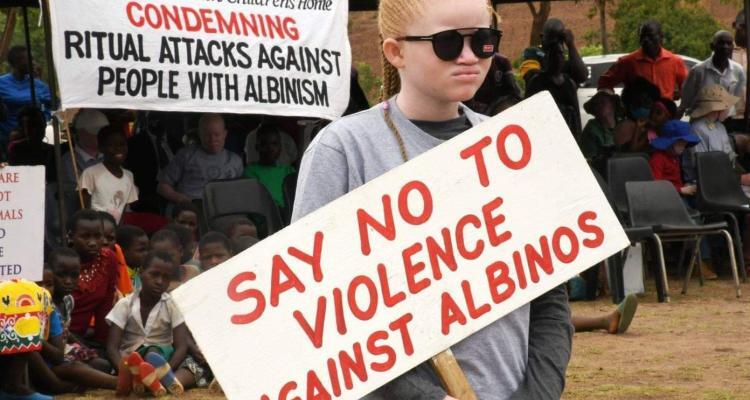
Amnesty International in its report has mentioned harassment of rights defenders, overcrowded prisons, and attacks against people with albinism as some of the human rights violations happening in Malawi.
The organisation has today released its 2020/21 report on the state of the world’s human rights.
During the period under review, Malawi was ruled by former president Peter Mutharika and President Lazarus Chakwera who took over in June.
Amnesty noted in its report that freedom was under attack as human rights defenders were arrested, harassed and intimidated as the authorities mounted a crackdown on dissent ahead of the June presidential elections.
On right to health, Amnesty said prisons are still overcrowded amid the Coronavirus pandemic.
“Over 107 prisoners and 27 prison officers had tested positive for COVID-19 by August which accounted for 3% of infections nationwide. Facilities were dilapidated and there was insufficient access to food, water and medical treatment throughout the country,” reads part of the report.
The organisation also expressed concern over attacks against persons with albinism in the country.
According to Amnesty, between January and October, at least three abduction attempts were made against people with albinism. In January, the grave of a two-year-old boy with albinism was tampered with in Mulanje. In February, Tafwauli Ngona, a 92-year-old woman, had two toes severed in an attack by an unidentified assailant in Mzimba.
“The trial of 12 people accused in connection with the murder of MacDonald Masambuka, whose body was found dumped in a field in 2018, continued. A former presidential adviser and some politicians were implicated in the killing, but charges were not brought against them,” the organisation said.
Other rights violations include unlawful killings by the police and interference with the work of the Judiciary by the Executive.
The Amnesty International Report 2020/21: The State of the World’s Human Rights covers 149 countries – including 35 in Sub-Saharan Africa – and delivers a comprehensive analysis of human rights trends globally in 2020.
In it, the organization highlights conflicts between states and armed groups and attacks on civilians continuing or escalating in most parts of the region.
“Conflicts between states and armed groups and attacks on civilians have continued or escalated in most parts of Sub-Saharan Africa. In Southern Africa, the long simmering violent tensions in Mozambique’s Cabo Delgado province intensified into full-blown armed conflict. The Horn of Africa region saw an outbreak of conflict in Ethiopia’s Tigray region,” said Deprose Muchena, Amnesty International Director for East and Southern Africa.
“At the same time, armed groups maintained a foothold in West Africa and the Sahel region, attacking civilians in Burkina Faso, Mali, Niger, and Nigeria. They blighted many lives in Cameroon, the Central African Republic (CAR) and Chad. In response, state security forces also committed grave human rights violations against civilians,”
The report also describes those already most marginalized, including women and refugees, as bearing the devastating brunt of the COVID-19 pandemic, as a result of discriminatory policy decisions by leaders in the region.
“COVID-19 has brutally exposed and deepened inequality across Sub-Saharan Africa. Governments should urgently re-invest in people and “repair” the broken economic and social system which perpetuates poverty and inequality, including leaving too many behind,” said Samira Daoud, Amnesty International West and Central Africa Director.
Amnesty’s report also shows how existing inequalities have left marginalized communities, refugees, older people, health workers, and women disproportionately negatively affected by the pandemic, with gender-based violence exacerbating the situation.
COVID-19 worsened the already precarious situation of refugees, asylum seekers and migrants in many countries, trapping some in squalid camps, cutting off vital supplies, or precipitating border controls that left many stranded.
Muchena has since called for the need to reboot to build a world grounded in equality, human rights, and humanity.
“We must learn from the pandemic and come together to work boldly and creatively so everyone is on an equal footing,” said Muchena.














